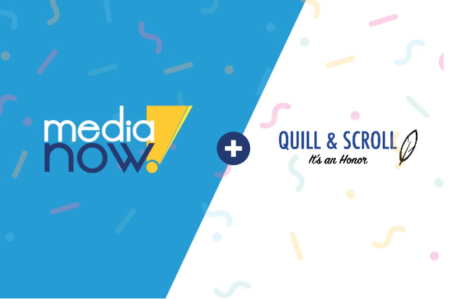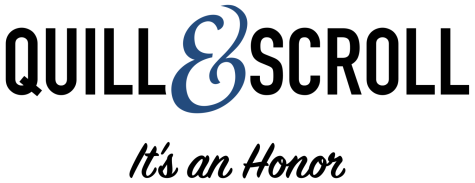THE WEEKLY SCROLL
May 2. 2022
The Lede
Twits and Tweets
How will Twitter change if Musk is in charge?
Much of last week’s non-war news focused on the $44 billion offer Tesla founder and CEO Elon Musk made to purchase Twitter, vaguely promising to remove the guard rails that have existed over the last year when Twitter starting flagging and deleting propaganda, conspiracy theories and other misinformation that could harm its users.
Liberals, fearing a takeover by conspiracy theorists on the right, have already started deleting their accounts.
Musk and others all across the political spectrum have criticized Twitter over the past few years for “censoring” content, no matter how outlandish or untruthful they may be. The argument goes that in a “marketplace of ideas,” the answer to bad speech is more good speech, not banning the irresponsible or outlandish.
In principle, that’s a good argument, though private companies are incapable of censorship. The First Amendment to the U.S. Constitution covers only government actors who wish to silence voices. In the private sector, it’s called “editing” or “moderating,” whether you agree with the practice or how it’s applied.
In practice, a wide-open marketplace of words, images and ideas can turn toxic and even illegal if it features child pornography, for example, or other unprotected speech. Of course, most student-journalists are more aware of these distinctions than some politicians.
Here’s what you can do:
No matter the future of Twitter, if you choose to keep your account there and you use other social media, keep in mind these best practices for all social media, which should be meaningful to all your audiences:
- Create professional profiles across platforms.
- Be grateful — Thank sources, congratulate other journalists.
- Avoid “Hot Takes” just to fan flames or create controversy.
- Ask your followers to fact-check your work.
- Use threads to create story.
- Ask your audiences for story ideas.
- Promote your own work and the work of others you deem valuable.
- Create transparency: Explain some of the difficult decisions you make as journalists and content creators.
- Show behind the scenes of how the yearbook, your broadcast program or your news staff does their work.
- Call to action: Give people something actionable, such as “click on this link,” “go to this place.”
- Have fun.
Union Time?
Classified staff at Kansas high school seek better pay and working conditions in attempt to unionize
If you attend a public school in the U.S. or Canada, chances are your teachers are unionized, and their wages and working conditions are the product of a negotiated agreement between the district and union representatives. Even teachers who don’t join the union in those schools benefit from the negotiated agreement.
At Lawrence High School in Kansas, journalists at The Budget wrote this week about an attempt by the school’s classified staff to seek better pay (they currently earn between $11 and $13 per hour) and better working conditions (time to sit down for lunch, for example).
Here’s what you can do:
The story in the LHS Budget is a great example of how students can localize a national story, in this case the trend of lower-paid workers in the U.S. to discuss unionization, spurred by the April news of an Amazon warehouse in New York City successfully unionizing for better pay and working conditions.
LHS journalists Cuyler Dunn and Arien Roman Rojas, assisted by adviser Barbara Tholen, a former Quill and Scroll scholarship winner, open with a compelling anecdote from a para-educator and then transition into a really effective nut graph:
Recently PAL-CWA has been in negotiations with the district over a wide array of proposals regarding working conditions and recent negotiations have prompted increased concerns from classified workers. Due to the multi-million dollar budget deficit facing Lawrence Public Schools, the future of their jobs, and the future of education as a whole in Lawrence Public Schools has come into question.
The story also includes a bevy of official sources, affected workers and data from the district’s budget and negotiation documents.
How much do the classified staff in your school or district make? Is their pay a livable wage? Or is it more in the $11 to $13/hour range? How do classified staff wages compare to teacher pay? How does classified pay compare to other professions that require similar education and responsibility? How can a person get by on a single full-time job that may pay only $20,000 per year?
The NYT Corps
The Times creates a “talent-pipeline program” for student-journalists from underrepresented groups
Student-journalists at two- and four-year colleges are getting even more access to mentors from The New York Times in a new program the NYT announced Thursday. The Times is specifically setting up journalists from underrepresented groups with mentors in the NYT newsroom.
“Access to quality career guidance is one of the biggest challenges facing students seeking to be journalists. This program is an effort to address that,” Career Programs Director Theodore Kim said in Thursday’s news release.
Any college student-journalist, starting with the class of 2023, may apply if they meet certain criteria defining “underrepresented”: students of color and/or those from socio-economically disadvantaged backgrounds.
Here’s what you can do:
If you’re a senior in high school, and if you plan to major in journalism and/or participate in student media at your college or university, APPLY! Students scheduled to graduate college in 2026 are eligible. And if you don’t make it in this first cycle, try again next spring. The deadline for applications is June 15.
It’s An Honor
Membership Season
Nominate members and order materials ASAP to guarantee delivery in time for graduation!
It’s now May, and the rush is on to get your students nominated for membership and to order pins, cords and other Quill and Scroll materials and memorabilia. We’re running low on some inventory items, so make sure you get what you need by sending in your order as soon as possible.
Scholarships for Students
The deadline for Quill and Scroll scholarships is May 15
Student scholarship applications are now open, and they’re for students who are Quill and Scroll members or for students who have won awards in any number of Quill and Scroll contests. Apply for the grants — which can pay up to $1,500 for your first year in college — before May 15.
YEC open for entries
Looking for something to do after the yearbook deadline and before distribution? Enter the YEC!
The 2022 Yearbook Excellence Contest is open for entries. The cost for each entry in all 30 categories is $7, and schools will be divided by size — Class A for 1,000 or more students, and Class B for 999 or fewer students.
Entry deadline is Oct. 10, and here is a link to complete descriptions of those 30 categories.
Judges will award first, second and third places in each category for each class, and they’ll award honorable mentions so that between 10 and 15 percent of all entries are recognized in every category. All students named as award recipients will be eligible to apply for Quill and Scroll student scholarships in May of their senior year.
Quill and Scroll administrators will then tally points (5 for first place, 4 for second, 3 for third and 1 for HM) to determine a Blue and Gold Award winner for each class. Last year’s winners were Shawnee Mission North High School in Overland Park, Kansas (Class A) and Christ Presbyterian Academy of Nashville, Tennessee (Class B).
Here’s a complete list of last year’s winners, and here’s a slideshow that you can use to prepare for what judges may be looking for.
 Summer camp!
Summer camp!
MediaNow and Quill and Scroll work together to help student journalists and advisers
Quill and Scroll is proud to partner with Media Now to help students and advisers with the skills they need to succeed in the 21st Century newsroom through summer camp and year-round online resources.
We are excited for Media Now for many reasons. Like us, they have high standards and are well respected in the journalism community. They have similar guiding principles to our own Eight Guiding Principles. And we both want to recognize and further the cause of scholastic journalism. In addition, if you’ve ever been part of a Media Now event, you know they deliver not only on quality of instruction, but in bringing the energy and making their events fun.
Critique forms available
News Media Evaluation is the best way to get objective feedback about your news operation
The Quill and Scroll News Media Evaluation provides news media staffs a one-of-a-kind assessment of your publication(s) with constructive comments and suggestions for improvement from qualified evaluators. Judges will provide a thorough analysis and rating to schools, and the evaluation exercise and feedback are instructive and developmental. High schools and junior high/middle schools may enter their multimedia news operations, newspapers, news magazines and/or online news sites until June 15, 2022. Entries and ratings are returned in early September 2022. This service is open to non-member schools as well as member schools. Here’s the web page with all the information about entering your publication.
What’s Viral?
Social media in education
Help Class Intercom learn about social media use in schools
Quill and Scroll partner Class Intercom would like your help in learning more about how schools used social media in communications and education this past year. Can you please take 5-7 minutes to share your experience? As a thank you, respondents have a chance to win a $50 Amazon gift card!
The annual Social Media in Education survey gathers insight from educational professionals on how schools are using social media communications. Results are compiled into an annual report to help all schools advance their communications.
https://www.surveymonkey.com/r/DYJ3HY2
Responses accepted though Friday, May 6.
Be sure to keep an eye out later this fall for the Social Media in Education report. All respondents will get it sent directly to their inbox in the fall!
Inclusive Storytelling
AP Stylebook’s newest version will include a chapter on how inclusive reporting and editing can make richer media
The Associated Press announced in April that its latest version of the AP Stylebook will include a chapter on inclusive storytelling.
“The new inclusive storytelling chapter emphasizes the importance of inclusive reporting and editing in ensuring accuracy and fairness, and offers guidance to recognize and overcome unconscious biases; use thoughtful and precise language; include necessary context and background; avoid tokenism; and make content accessible,” the AP wrote in its blog.
In addition, the new version will include revised or new entries on:
- pronoun use, specifically for they/them/their
- deadnaming
- the use of deaf/Deaf and “hard of hearing”
- Native Americans/American Indians
- critical race theory/CRT
If you’re not using the AP Stylebook as a first resource in developing your own style guide, well, you’re missing an awesome resource.
Just A Thought
 Social media webinar
Social media webinar
‘Why Would I Let My Students Take Over My School’s Social Media?’
The purpose of a public education is to teach students to be responsible members of our society, purposeful voters in our democratic republic and faithful stewards of the American ideal of equality before the law.
To that end, journalism teachers and advisers have always rightfully advocated for students to have the final say in the content they choose for their news publications, their yearbooks, their broadcast programs and their digital offerings. The Supreme Court has both affirmed (Tinker v. Des Moines ISD) and limited that right (Hazelwood v. Kuhlmeier) over the past 53 years. Still, research indicates that people become responsible adults if they’re taught to be responsible as children. Student media is the ultimate expression and venue for teaching responsibility, as well as collaborative and ethical decision-making skills.
This Wednesday afternoon, I have a chance to be part of a Webinar panel hosted by Class Intercom, which provides a software platform for schools to organize their social media presence. Led by its president, Dr. Jill Johnson, Class Intercom also encourages administrators — who otherwise could dictate the content of the school’s social media offerings — to empower students to choose the content that will represent the school. And despite the fear and trepidation that many administrators have about that, it is the right decision for them
Join me, Q&S Executive Director Jeff Browne, this Wednesday, May 4 at 3:30 p.m. CT (4:30 ET, 2:30 MT, 1:30 PT) as I join Dr. Jill Johnson of Class Intercom and others — including Q&S student members — in a webinar focusing on the importance of empowering student-journalists and content creators the freedom to make decisions for their own media, of course, but also the school’s social media presence.
It will be a great discussion.
